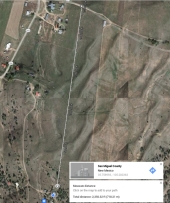Caley, we just bought our first homestead cow, a Dexter, in March '21. She has been a joy to our family, and has taught us more than any book! However, starting with some research is highly advisable. I started on YouTube and Permies.com, of course, and then read books all Winter.
Check out:
Permies.com - Homestead Cows
Some things I wish we would've done:
1. Don't be in a hurry! Make friends with homesteaders and farmers in your area, which I wish I had done more. The connections
since owning a cow could've helped us select the right one at a good price. Ask them about supplements and hay, etc...
2. Pasture, Pasture, Pasture! At least some permanent fencing is a must, and I would make sure that the cow is trained to poly-braid, etc. Plan to rotate paddocks, because a muddy cow is an unhappy, stressed cow. (and no fun to milk!) Watch a few Greg Judy videos.
3. Buy a tame animal with a sweet disposition. If possible, spend a couple visits seeing how the cow interacts with people (see #1). A skittish or aggressive cow won't do for a family milker, and maybe not even a beef cow. Remember the calves learn everything from the mama.
4. If the cow is bred, ask for the evidence and press the seller for a calving date. We were told that ours would calve in June/July, but turns out she didn't get bred until just before we picked her up!! It's almost November and her udder is just starting to swell. (Do the sellers know what they're talking about?)
5. For beef, my advice is to go with a mid-sized standard breed. Some of the rarer breeds might be tempting, but learning on a $1,200 animal is different than learning on a standard $300-400 one.
Man, there's so much to say, but I hope this helps!!

 1
1




 2
2








 5
5




 3
3



















